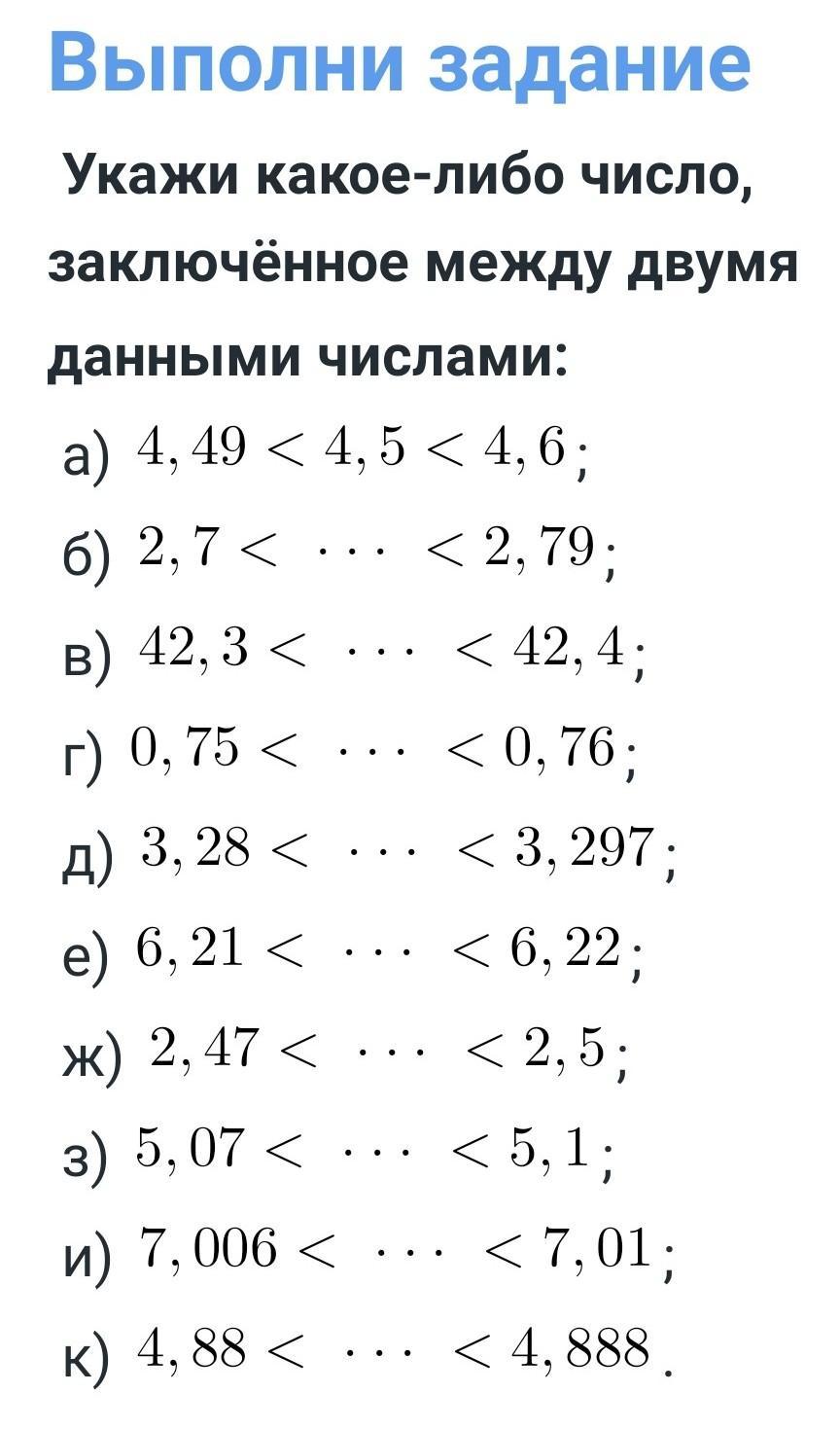Предмет: Математика,
автор: MrPanda8
Помогите срочно СРОЧНО
Приложения:

Ответы
Автор ответа:
1
Ответ:
Вот так надо делать. Я всё правильно решил.
Приложения:

Timur527:
лол,и че?
это разве сложная задача?
Типа мы эту тему начали изучать сегодня и я её не до конца понимаю
ну у меня к тебе претензий нет,но он понтуется как будто король математики,и мол кроме него никто это правильно не решит,хотя тут даже решать не надо
А ясно
Автор ответа:
1
Ответ:
Б. 2,73
В.42,34
Г.0,752
Д.3,283
Е.6,211
Ж.2,48
З.5,073
И.7,0064
К.4,885
Похожие вопросы
Предмет: Русский язык,
автор: suleymansulik79
Предмет: Русский язык,
автор: Аноним
Предмет: Английский язык,
автор: LizaSmirnova2003ru
Предмет: Геометрия,
автор: РусОрл2018
Предмет: Биология,
автор: snickers6